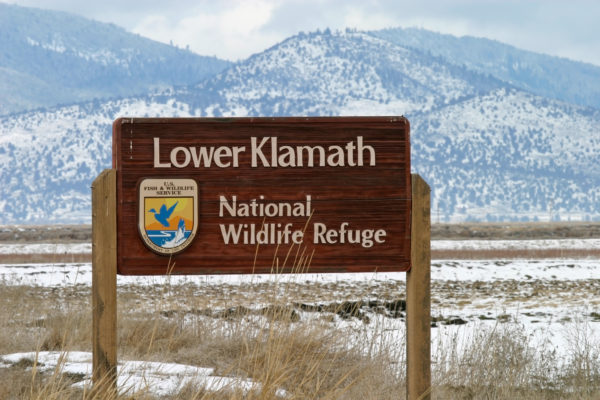The Klamath Basin National Wildlife Refuge Complex is a system of refuges straddling the California-Oregon border that are managed for migratory birds, whose habitat in the area has largely been converted for agriculture. The refuges are themselves open for farmers to lease as cropland, a controversial practice among some environmental activists. Several lawsuits have been filed to end practice and conserve the area exclusively for the birds.
Arguing against the lawsuits, the agency emphasizes that running the farmers out wouldn’t end well for the birds. According to Courthouse News‘ report on the oral argument in the cases:
[Assistant U.S. Attorney Jessica] Held said the service had evaluated the possibility of reducing farming even more than it already had on the refuges, but had concluded that crops benefit waterfowl “more than just having weeded land.” And she said water rights are governed by a highly complicated set of rules that the service doesn’t control. “Even if the service disallowed farming during times of drought, that wouldn’t make water available for wildlife,” Held said “That water would just go to other users that have higher priority than the refuge.”
Farmers who own these water rights pump water into the refuges at their own expense to water their crops and maintain the wetlands. If you drive them out, the water would go with them. Recent history shows the catastrophic consequences for birds when the refuge doesn’t receive this water.
The refuge litigation is an interesting example of a long-running environmental debate between “sharing” or “sparing.”
It is one of the biggest questions in conservation: Should we be sharing our landscapes with nature by reviving small woodlands and adopting small-scale eco-friendly farming? Or should we instead be sparing large tracts of land for nature’s exclusive use – by creating more national parks and industrializing agriculture on existing farmland?
In the case of the refuge, sparing could ultimately destroy the environmental values meant to be protected. Sharing dramatically lowers the cost of protecting them, by aligning the interests of farmers with birds.
One anecdote isn’t going to tip the scales in favor of one side or the other in the broader debate. But, perhaps, it’s an indication that the answer is “both” or “it depends.” Technological innovation can increase the productivity of land to the point that other land can be spared. That was the expectation of Norman Borlaug, the father of the Green Revolution, who predicted that “by producing more food per unit of cultivated area, more land would be available for other uses, including recreation and wildlife.”
But, until we reach that decoupled future, sharing can help lower the cost of protecting the environment by making it a byproduct of productive activity.




